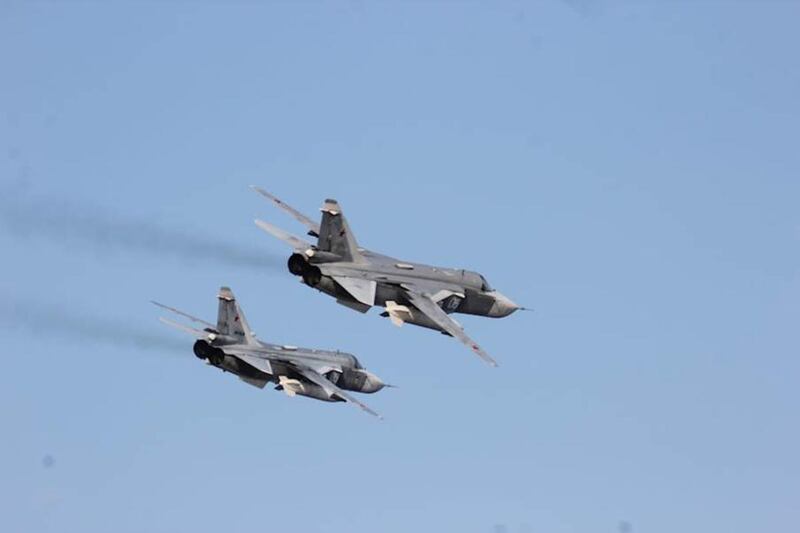Over a two-day period this week, Russian warplanes and a military helicopter flew dangerously and provocatively close to a U.S. Navy destroyer conducting a joint exercise with allies in the Baltic Sea. Video released by the Navy demonstrates how close the repeated encounters were.
It was not the first such incident, nor is the U.S. alone as the recipient of such provocations. Sweden and Britain both have scrambled fighters recently in response to Russian jets coming close to their borders.
Without question, these acts are unacceptable, and they ought to engender strong protests from the U.S. government. But they also are an indication of the tensions surrounding Russia’s annexation of the Crimean peninsula, which was a part of Ukraine, and of a buildup of troops among Europe’s Western alliance.
Much of a war-weary Western world has been riveted on the seemingly endless string of attacks from terrorists aligned with the Islamic State, and rightfully so. That group’s ability to recruit and to carry out attacks within Europe and the United States is alarming.
But it also is becoming increasingly evident that Mitt Romney was correct when, as the Republican nominee for president in 2012, he identified Russia as the No.1 geopolitical foe of the United States.
In a debate that year, President Obama criticized Romney for that statement, characterizing it as out of touch with the realities of a modern world. But now it is becoming increasingly clear that Russia, under President Vladimir Putin, is an aggressive force that requires a clear strategy from Washington, and that such a strategy is missing.
At the very least, serious discussions about how to respond to Russia ought to be a central part of the current presidential campaigns.
Putin seems to delight in poking and prodding the West, as if trying to send a message of strength and to project other nations as weak. It is a petulant and unconvincing strategy, but also a sign of Russia’s desire to re-establish its regional influence.
The United States allowed Putin to take control of the civil conflict in Syria, which allowed him to strengthen Syrian President Bashar Assad, someone Obama once said had to go. Now he is tweaking U.S. Naval strength in the Baltic Sea.
The Obama administration is right to not retaliate against fighters that come within, by some reports, 75 feet of a U.S. warship. That would needlessly escalate a dangerous situation. There is no need to accept Putin’s definition of relative strength.
However, there also is no need to become accustomed to Russian planes buzzing U.S. warships in international waters, or to accept his apparently aggressive intentions. Russia seems to be engaged in a public relations campaign that seeks to diminish the reputation and strength of the United States in the eyes of the world.
Washington needs a clear strategy to combat this. Every candidate seeking to replace Obama needs to indicate a clear understanding that Russia is a foreign policy priority, and he or she should articulate a strategy, as well. Voters should demand as much.
With threats from the Islamic State, North Korea, Iran and other trouble spots, the world is growing increasingly dangerous and complicated. But, weary though it may be, the nation cannot lose focus on Russia’s resurgence.

